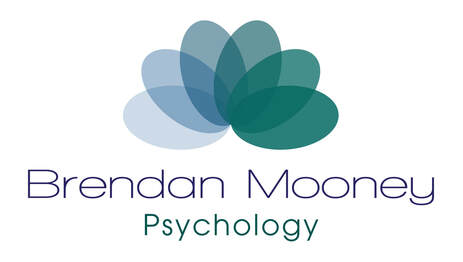The Psychology of Sound
Sound is a form of communication. Whether it is music, a bird singing or the sound of someone's voice etc - sounds communicate. The question is...if sounds communicate then what exactly is being communicated?
Much sound does not have words, such as when a bird sings or we hear the ocean waves crashing into the shore. Yet we 'feel' a lot from sound and can even put words to what we feel. For example, often people describe the sound of the ocean as 'calming', 'soothing', 'settling' etc. Hence despite no words from the ocean the sound communicates to us in no different way as if words were spoken.
If sound communicates, is it worth developing the ability to articulate or put words to exactly what a particular sound is communicating? Absolutely! Why would this be a hugely important ability to do in life? Because we are impacted and affected by sound all of the time, much more than we tend to appreciate. Sound communicates way beyond the words that might be expressed such as with music and if we are not aware of what a sound is communicating we can be ill affected by it which can then have an impact on our moods, thoughts and behaviours.
Perhaps you have had the experience of listening to a certain music album or song over a period of time and you started to notice it was having an impact on your general mood and/or thoughts? This can occur very easily because sound, whether it be music or otherwise, is a certain vibration of energy that permeates the human body. The key is to discern what a particular sound is actually communicating which may not correspond to the words or lyrics being expressed!
The following music track is here shared as an example of music that communicates in a way that can be described with words even though the song itself is an instrumental that has no lyrics. This music track is a combination of violin and piano which has not been professionally recorded but communicates very palpably nonetheless. Hence sound does not need to be 'perfect' to the ears for it to have an impact for it is what the sound is vibrationally communicating that is the important point not how professionally polished it was produced.
Much sound does not have words, such as when a bird sings or we hear the ocean waves crashing into the shore. Yet we 'feel' a lot from sound and can even put words to what we feel. For example, often people describe the sound of the ocean as 'calming', 'soothing', 'settling' etc. Hence despite no words from the ocean the sound communicates to us in no different way as if words were spoken.
If sound communicates, is it worth developing the ability to articulate or put words to exactly what a particular sound is communicating? Absolutely! Why would this be a hugely important ability to do in life? Because we are impacted and affected by sound all of the time, much more than we tend to appreciate. Sound communicates way beyond the words that might be expressed such as with music and if we are not aware of what a sound is communicating we can be ill affected by it which can then have an impact on our moods, thoughts and behaviours.
Perhaps you have had the experience of listening to a certain music album or song over a period of time and you started to notice it was having an impact on your general mood and/or thoughts? This can occur very easily because sound, whether it be music or otherwise, is a certain vibration of energy that permeates the human body. The key is to discern what a particular sound is actually communicating which may not correspond to the words or lyrics being expressed!
The following music track is here shared as an example of music that communicates in a way that can be described with words even though the song itself is an instrumental that has no lyrics. This music track is a combination of violin and piano which has not been professionally recorded but communicates very palpably nonetheless. Hence sound does not need to be 'perfect' to the ears for it to have an impact for it is what the sound is vibrationally communicating that is the important point not how professionally polished it was produced.
The power of music is twofold - it has the ability to support another to be truly inspired and also has the ability to undermine them in a way that they will likely not realise. Of course if the latter is the case it is not true power but force being used to dominate over another. Hence when we produce sound and in particular music, we have a responsibility to not impose that sound on others, for otherwise we are 'dumping' on them in no different way to how we can do this in conversation with one another.
This section of the website will explore the psychology of sound to bring more awareness to this vast topic. We simply do not realise how much we are impacted by sound in our lives, in particular the influence sound has on our moods, thoughts and behaviours.
Brendan has a background in music having played violin since aged 3 years and tutored violin at several schools for over 15 years before working as a psychologist full-time. He has an Associate Diploma in Music (Violin) and has played in the Queensland Youth Symphony Orchestra on both violin and viola. Brendan has performed for ballets, operas, concerts, live television events, weddings and in various bands over the years.
Rewarded for being hurt
|
Is there more to communication than words and tone of voice?
|



